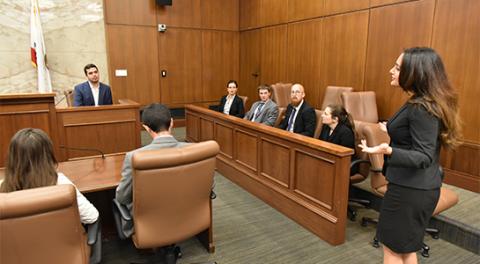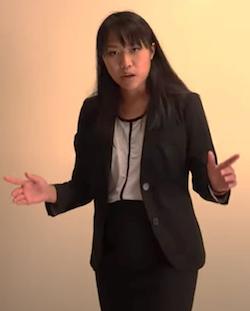
Amid in-person school closures and global travel restrictions, UCLA School of Law has created online trial competitions for the nearly 10,000 law students and undergraduates whose competitions were cancelled as the world grapples with the COVID-19 crisis.

Students in UCLA School of Law’s A. Barry Cappello Program in Trial Advocacy earned high honors in the first-ever National Online Trial Advocacy Competition, which took place between March 15 and April 17.
Co-hosted by Fordham University School of Law and UCLA Law, the tournament included 170 student participants from 67 law schools. Six UCLA Law students placed in the top 10%, and no other law school had more than one student rank as high.
In 2019, A. Barry Cappello ’65 saw a way in which he could strengthen his alma mater in the field to which he was devoted: trial advocacy. Cappello – a nationally celebrated litigator and managing partner of Santa Barbara-based Cappello and Noël – made a $500,000 gift that created the A. Barry Cappello Program in Trial Advocacy. The program offers a certificate for students who complete a rigorous trial advocacy curriculum and laid the foundation for the school’s trial advocacy team to reach unprecedented success.
The A. Barry Cappello Program in Trial Advocacy provides an extensive education in the strategies and techniques required to be a successful litigator. Through an array of courses, competitions and clinical opportunities, students learn how to prepare for and conduct jury selection, opening statements, direct and cross examinations and closing arguments, as well as how to make and respond to evidentiary objections.
A. Barry Cappello Program in Trial Advocacy
From innovative courses to the nation's best mock trial team, UCLA Law offers a comprehensive, immersive approach to trial advocacy.
The A. Barry Cappello Program in Trial Advocacy provides comprehensive training in the strategies and techniques required to be a successful trial lawyer. Through courses, clinical opportunities and one of the best competition programs in the country, students learn how to prepare for and conduct jury selection, opening statements, direct and cross examinations and closing arguments, as well as how to make and respond to evidentiary objections. Award-winning faculty, experienced trial lawyers, and nationally successful mock trial coaches lead the program.